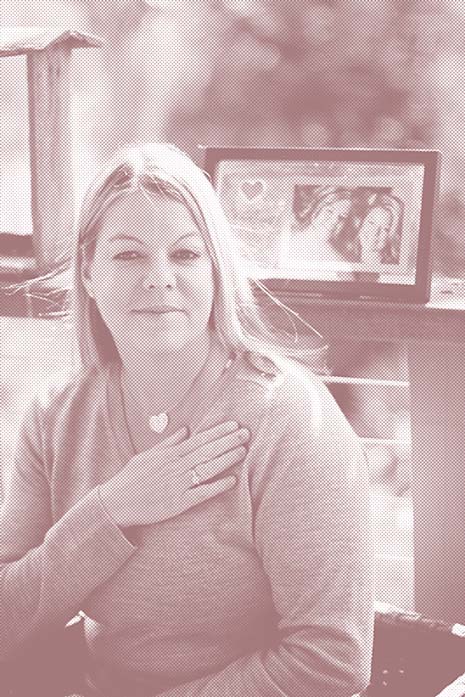 By Melissa McCullough
By Melissa McCullough
On 11th November Australians come together to remember the armed forces who have died in the line of duty, but for Rebecca Tyler, 11th November is a day she’d rather forget. Rebecca grieves for the loss of her twin sister, Elizabeth (Beth), who took her own life on this day in 2013.
“She was my best friend for 38 years. She was the other half of me. My family within a family. It’s been a difficult journey trying to label exactly who I am as someone other than Beth’s twin. She was my soulmate and the person that gave me the privilege of using the title of twin. Beth can live on in my heart now.”
Having never been exposed to suicide directly or indirectly, Rebecca and her family were not familiar with strategies for coping or sifting through mental illness, and it’s been a very big learning experience. Like many other people in the aftermath of suicide, Rebecca recalls, “We knew that Beth had been depressed and was going through quite a bit, but we never could have imagined that she would take her life.” The journey has been difficult on her family and friends and has practically torn the family apart. “Suicide is now something that’s a part of me and I will live with it for the rest of my life. It is not something you get over, but rather, you learn to live your life around.”
“Beth had a heart of gold and the most beautiful smile. She always wanted to make people happy and, in the end, perhaps it was too much. She hid her pain well.” Too many Australians find themselves in this same situation. The most recent Australian data (ABS, Causes of Death, 2015) reports deaths due to suicide in 2015 at 3,027. This equates to more than eight deaths by suicide in Australia each day. For every death by suicide, it is estimated that as many as 30 people attempt to end their lives. That is approximately 65,300 suicide attempts each year.
After spending over a year in one-on-one counselling, Rebecca found the support group, ‘Support After Suicide’(SAS), delivered by the Jesuit Support Services, and travelled to Richmond for two years. SAS were then able to form a group in Frankston which she has been going to on the first Thursday of each month ever since. Rebecca says the group has become her family and she feels blessed to have found them.
Moving through her journey of intense grief, Rebecca now feels she has progressed and is ready to help other newly bereaved people. “I have moved on, though the daily battle will never leave me and will always be a part of me.” Her aim is to give people hope that life continues and promise that there is love and support around the corner for everyone. Rebecca not only attends the ‘Support After Suicide’ group, she has also immersed herself into the organisation ‘Chasing Change-Frankston & Mornington Peninsula Suicide Prevention Network’. Chasing Change is a grass-roots community initiative with the goal of creating change to prevent suicide through community conversation and collaboration.
For years, people have not wanted to talk about mental health, depression and suicide. Society is finally adapting, and people are now feeling that it’s easier to talk about these once taboo topics. By talking about them, the lines of communication open for those that have been afraid or embarrassed to discuss personal and family problems in the past. Rebecca reassures us that everyone has something going on and a story to tell; No matter what the narrative is, allowing it to be told is vital.
“There are so many things that we can be doing. From simple things like talking to just giving people time. We should be listening more. Really listening, and reaching out just to say are you ok?”

Just hours before Beth took her life, the twins had their last phone conversation which lasted over an hour and a half. “She felt that everyone had let her down, and maybe we had. I remember telling her to hang on and that tomorrow would be a new day. I often wonder that if we had done more for Beth, might she still be here?”
Chasing Change held their third annual World Suicide Prevention Day Walk this past September. The walk was held in collaboration with Mornington Peninsula Shire Youth Services, It’s Okay Not To Be Okay, Free Hearts, HALT and SEMPHN.
“The aim was to create a positive, safe, and welcoming event in which people of all ages, backgrounds, and experiences can come together to acknowledge the impact suicide has on many people’s lives,” said, Rebecca. She added; “This is a small step in a long process of bringing communities together to collectively work towards reducing suicide and increase people’s awareness of positive mental health.”
“We live in these great small neighbourhoods where we run into familiar faces at the supermarket and the petrol station. We smile and say hello. I feel passionate that we are going to continue helping each other, and that’s what Chasing Change is here for.”
If you, or someone you care about, is in crisis and you think immediate action is needed, call emergency services (triple zero – 000), contact your doctor or mental health crisis service, or go to your local hospital emergency department.
www.facebook.com/supportaftersuicide
www.facebook.com/Chasingchangespn
For access to crisis support and suicide prevention services, call Lifeline on 13 11 14.

 By Melissa McCullough
By Melissa McCullough